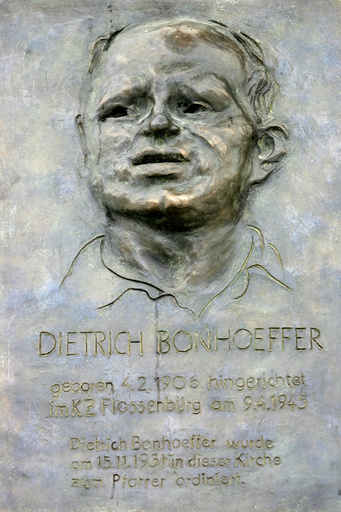Understanding Dietrich Bonhoeffer
Dietrich Bonhoeffer, a notable Lutheran pastor and theologian from Germany, was executed by the Nazis in 1945 at the age of 39 due to his involvement in a resistance movement that sought to assassinate Adolf Hitler. Born in 1906 in Breslau, now known as Wroclaw in Poland, he was the youngest of eight children born to an educated and prominent family.
Displaying deep religious devotion from a young age, Bonhoeffer pursued theological studies and completed his doctoral dissertation by the time he was 21 years old. His education continued at Union Theological Seminary in New York, where he embraced the teachings of Harlem’s historic Abyssinian Baptist Church, a pivotal establishment in the African American church tradition. This experience influenced his perspectives on faith-driven social justice.
Upon returning to Germany, Bonhoeffer resisted the Nazi regime’s attempts to manipulate the Protestant church for its racist agenda. In direct opposition to the compromised church, he initiated an unofficial seminary, promoting theological integrity. His travels across various nations were instrumental in fostering unity among different denominations, experiences that also proved valuable in covert operations against the Nazi regime.
Working alongside family members and associates within German intelligence, Bonhoeffer became a part of a clandestine group aiming to oust Hitler and end the war. Despite not being directly involved in the assassination plans, he was aware of and supported them. Following the failure of the plot, Bonhoeffer was arrested in 1943 for his resistance activities and was ultimately executed by hanging on April 9, 1945.
Bonhoeffer’s Enduring Legacy
Since his execution, Bonhoeffer’s theological writings, devotional materials, and letters penned during his imprisonment have garnered widespread readership. His life has been depicted in numerous biographies, documentaries, and a recent film titled “Bonhoeffer: Pastor. Spy. Assassin.” He is celebrated as a martyr in the struggle against the Nazis and is honored in stained glass windows in churches worldwide. At Westminster Abbey in the United Kingdom, he is commemorated alongside figures such as Martin Luther King Jr. and Oscar Romero, underscoring his significant legacy.
However, some scholars have critically examined the accolades bestowed upon Bonhoeffer, suggesting that while his bravery is acknowledged, the scope of his involvement in resistance efforts has occasionally been inflated. Critics point out that highlighting resisters like Bonhoeffer may distract from the broader failures of German churches to oppose the Nazi regime effectively.
The Holocaust remembrance center, Yad Vashem, has refrained from including Bonhoeffer among the Righteous Among the Nations, a designation for non-Jewish individuals who risked their lives to save Jews during World War II. Although he facilitated the escape of a group of Jews to neutral Switzerland, Yad Vashem concluded in a 2003 statement that, despite recognizing his moral character, he did not fulfill the criteria necessary for this honor. Additionally, his historical advocacy for the conversion of Jews to Christianity has been noted.
Notable Quotes by Bonhoeffer
Among the poignant reflections attributed to Bonhoeffer is a powerful statement from his 1937 work, “The Cost of Discipleship,” where he writes, “When Christ calls a man, he bids him come and die.” Another significant quote from his 1933 essay, “The Church and the Jewish Question,” articulates, “Both too much law and order and too little law and order compel the church to speak … not just to bandage the victims under the wheel, but to put a spoke in the wheel itself.” In his letters, he expresses a profound concern for the relevance of Christianity in the modern world, stating, “What is bothering me incessantly is the question of what Christianity really is, or indeed who Christ really is, for us today. … We are moving towards a completely religionless time.”
Despite his well-documented thoughts, there are misattributions to Bonhoeffer, such as the claim that he said, “Silence in the face of evil is itself evil. … Not to speak is to speak.” Researcher Warren Throckmorton indicates this popular quote lacks evidence that Bonhoeffer actually made this statement.




